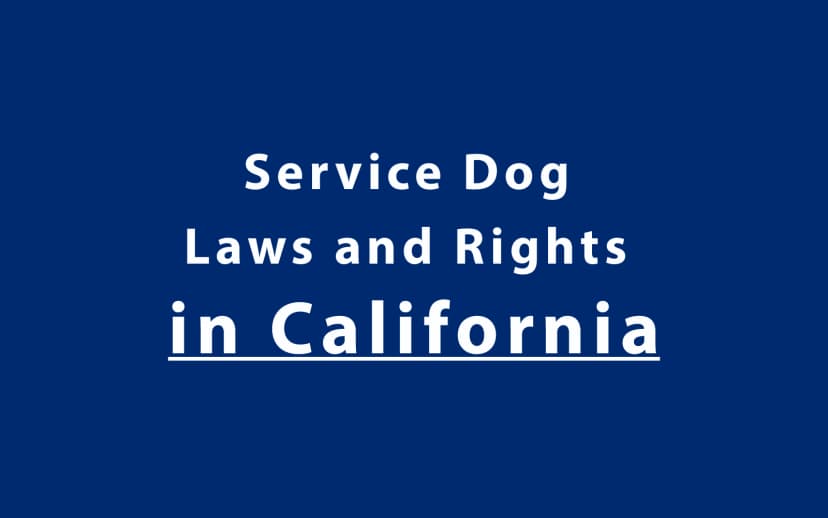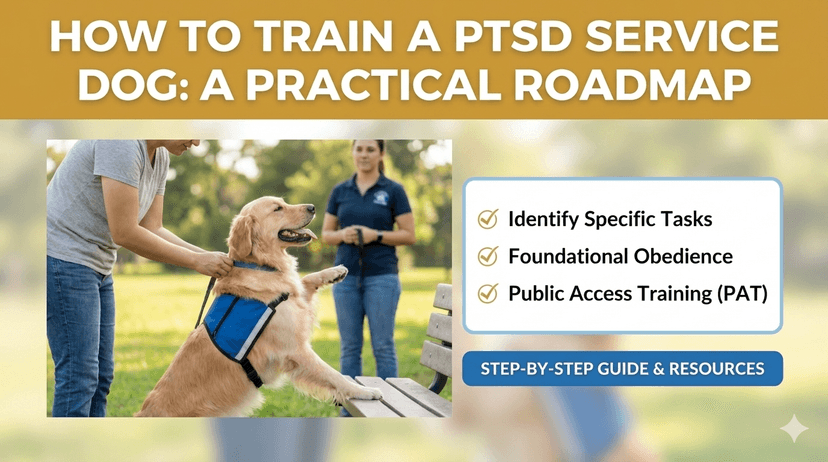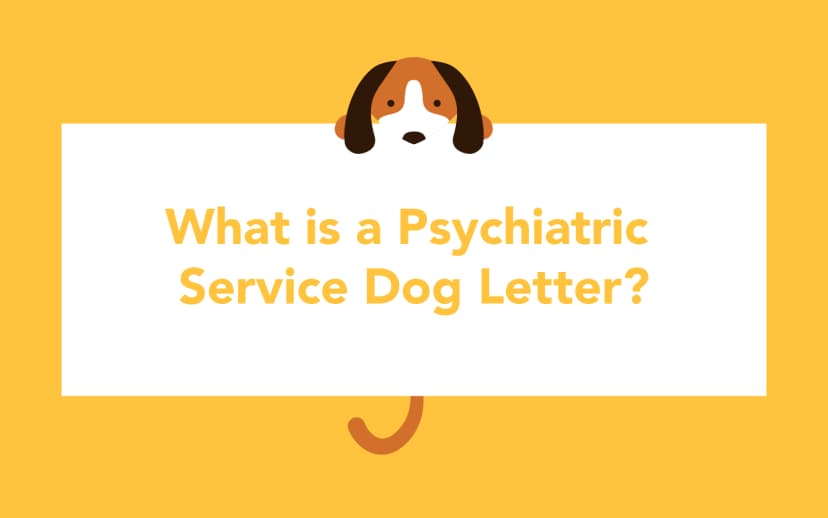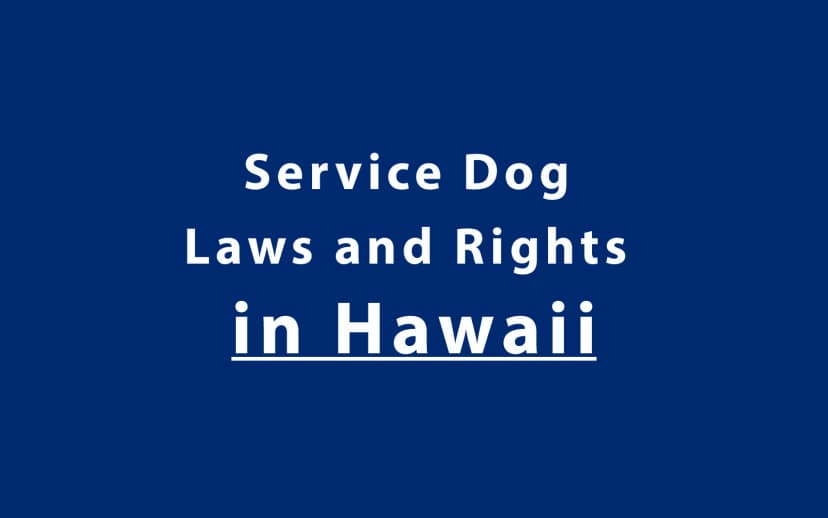Service Dog Laws and Rights in Maryland
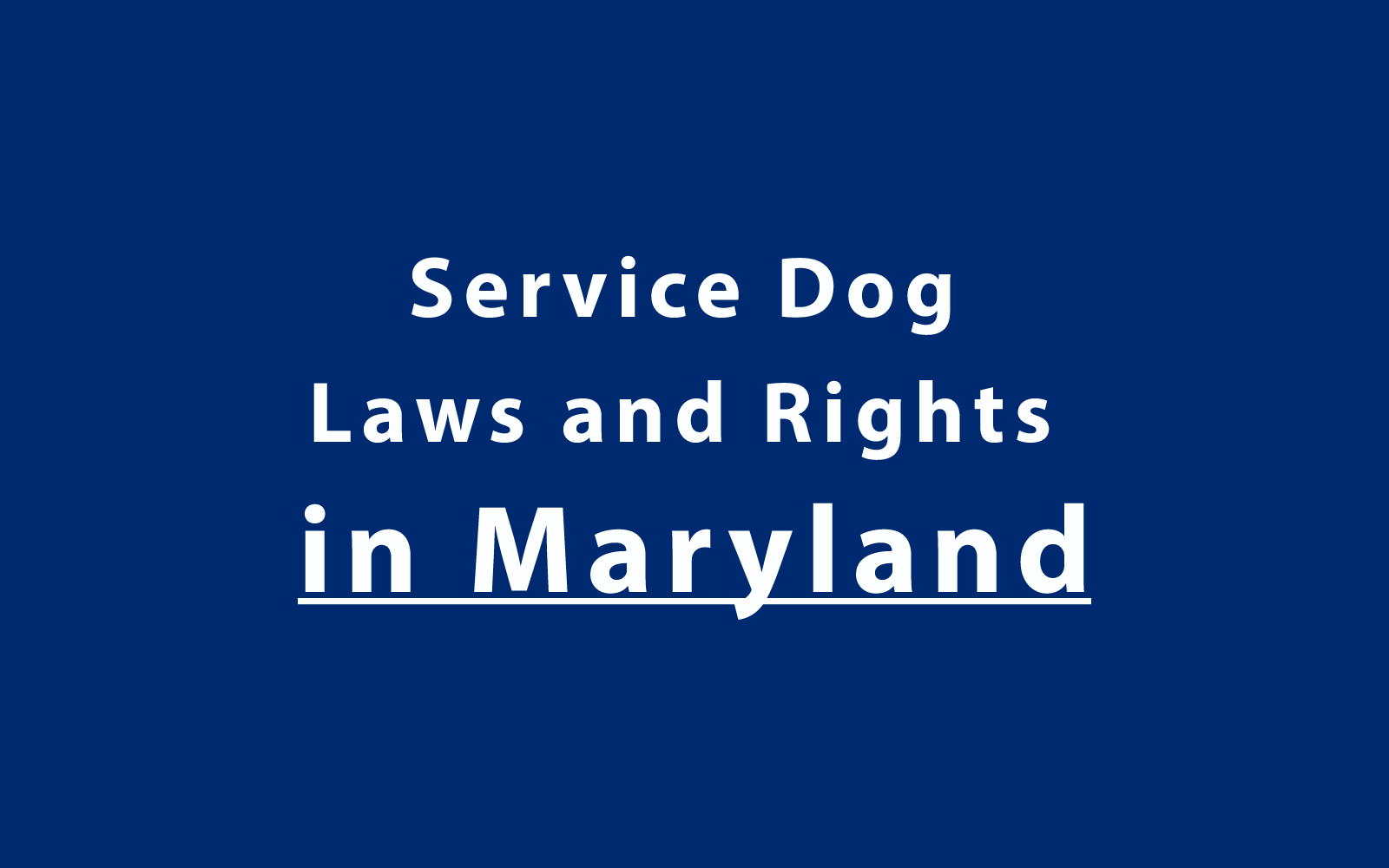
Service dogs play a vital role in assisting individuals with disabilities, enabling them to lead more independent and fulfilling lives. In Maryland, as in other states, specific laws and regulations govern the use of service dogs, ensuring the rights of handlers are protected while maintaining public safety and accessibility. This comprehensive guide delves into the definitions, rights, responsibilities, and legal considerations associated with service dogs in Maryland.
Introduction to Service Dog Rights in Maryland
Understanding the legal landscape surrounding service dogs is essential for handlers, businesses, landlords, and the general public. Both federal and state laws provide protections and set guidelines to ensure that individuals with disabilities who rely on service dogs can access public spaces, housing, and employment without discrimination. Key legislations include:
- Americans with Disabilities Act (ADA): A federal law prohibiting discrimination against individuals with disabilities in all areas of public life.
- Maryland Human Services Code § 7-704: State legislation that aligns with the ADA, offering additional protections within Maryland.
- Fair Housing Act (FHA): Ensures individuals with disabilities have equal access to housing, including accommodations for service and assistance animals.
- Air Carrier Access Act (ACAA): Regulates the rights of individuals with disabilities when traveling by air with service animals.
Definition of a Service Dog in Maryland
Under the ADA, a service animal is defined as a dog that is individually trained to perform tasks or do work for a person with a disability. These tasks must be directly related to the individual’s disability. Maryland law mirrors this definition, ensuring consistency between state and federal regulations. It’s important to distinguish between:
- Service Dogs: Trained to perform specific tasks for individuals with disabilities.
- Emotional Support Animals (ESAs): Provide comfort by their presence but are not trained to perform specific tasks related to a disability.
- Therapy Animals: Trained to provide psychological or physiological therapy to individuals other than their handlers, often in institutional settings.
While service dogs have broad public access rights, ESAs and therapy animals do not enjoy the same legal protections in public accommodations.
Public Access Rights in Maryland
Both the ADA and Maryland law grant individuals with disabilities the right to be accompanied by their service dogs in all public accommodations. This includes, but is not limited to:
- Restaurants
- Hotels
- Retail stores
- Government buildings
- Hospitals
Handlers are responsible for ensuring their service dogs are under control at all times, typically using a leash, harness, or tether. If these devices interfere with the dog’s work or the handler’s disability prevents their use, alternative methods such as voice or signal controls must be employed.
Businesses and staff may only ask two specific questions when the need for the service dog is not apparent:
- Is the dog a service animal required because of a disability?
- What work or task has the dog been trained to perform?
They cannot request documentation, require the dog to demonstrate its task, or inquire about the nature of the handler’s disability. However, a service dog can be asked to leave if it is out of control and the handler does not take effective action to control it, or if the dog is not housebroken.
Housing Rights for Service Dog Handlers
Under the FHA, individuals with disabilities are entitled to reasonable accommodations in housing, which includes the right to have service or assistance animals, even in properties with no-pet policies. Maryland’s laws align with these federal protections. Landlords and housing providers cannot charge pet fees for service or assistance animals but may request documentation if the disability or the need for the animal is not obvious. This documentation typically comes from a healthcare provider affirming the individual’s disability and the necessity of the animal for their well-being.
Employment Rights in Maryland
Title I of the ADA requires employers to provide reasonable accommodations to employees with disabilities, which can include allowing a service dog in the workplace. Employers may request documentation to substantiate the need for the service dog but must engage in an interactive process to determine appropriate accommodations. Accommodations can only be denied if they pose an undue hardship on the operation of the business.
Air Travel and Transportation Laws
The ACAA ensures that individuals with disabilities can travel with their service dogs on commercial airlines. Airlines may require documentation and prior notice, especially for long flights. Service dogs must be accommodated in the cabin without additional fees.
For other modes of public transportation, such as buses, trains, and taxis, the ADA mandates that service dogs be allowed to accompany their handlers. Transportation providers cannot deny access or charge additional fees for service dogs.
Service Dog Training and Certification in Maryland
Maryland does not require service dogs to be certified or registered. Handlers have the option to train the dog themselves or seek professional assistance. The key requirement is that the dog is trained to perform specific tasks related to the handler’s disability. While not legally required, some handlers choose to use identification cards, vests, or harnesses to signify their dog’s status as a service animal, which can help in public interactions.
Penalties for Misrepresenting a Service Dog in Maryland
In Maryland, as in many other states, falsely representing a pet as a service animal is taken seriously. While the Americans with Disabilities Act (ADA) does not impose specific penalties for misrepresentation, Maryland law addresses fraudulent claims in public accommodations.
Misrepresentation as a Civil Offense
Maryland’s Human Services Code prohibits individuals from misrepresenting a pet as a service animal in order to gain access to places they otherwise wouldn’t be allowed. While Maryland law does not currently impose criminal charges for impersonating a service dog, businesses are still within their rights to deny access if the animal does not meet the ADA’s definition of a service dog (i.e., if the dog is not trained to perform tasks for a disability or is disruptive).
Falsely claiming that a pet is a service animal can:
- Undermine the legitimacy of actual service dog teams.
- Create unsafe situations in public spaces.
- Lead to confusion and stricter policies that harm legitimate handlers.
Protecting the Integrity of the Service Dog Community
The best way to support the service dog community is by respecting the responsibilities that come with public access rights. Service dog teams are not granted privileges—they are protected based on medical necessity and task-trained functionality.
If you suspect someone is fraudulently using a service dog vest or falsely claiming public access rights:
- You can report the incident to business management or, if necessary, local law enforcement.
- Always avoid confrontation, and let trained authorities handle the matter.
How Businesses and the Public Should Interact with Service Dogs
Education and awareness are critical when it comes to service animals. In Maryland, businesses and the general public are expected to follow ADA guidelines in how they interact with service dog handlers.
What Businesses Should Know
- You cannot ask for medical documentation or proof of disability.
- You may only ask two questions if the dog’s status is not apparent: whether the dog is required because of a disability, and what task(s) the dog is trained to perform.
- You can ask the handler to remove the dog if it is out of control or not housebroken.
Public Etiquette with Service Dogs
- Do not pet, talk to, feed, or distract a service dog while it’s working.
- Avoid asking intrusive questions about the handler’s disability.
- Recognize that not all disabilities are visible—many individuals with service dogs have psychiatric, neurological, or other non-apparent conditions.
Resources for Service Dog Handlers in Maryland
If you are a Maryland resident seeking more information about service dogs, legal rights, or how to obtain a service dog, here are some valuable resources:
- Maryland Department of Disabilities: mdod.maryland.gov
- ADA National Network: adata.org
- U.S. Department of Justice (DOJ) – ADA Info: ada.gov
- Fair Housing Act Guidance (HUD): hud.gov
Additionally, if you need help training or registering your service dog for identification purposes, visit:
- Assistance Dog Partners (ADP) – www.assistancedogpartners.org
- Offers service dog registration, identification packages, training programs, and more.
Conclusion
Maryland offers robust protections for individuals who rely on service dogs, ensuring equal access to public spaces, housing, employment, and travel. By aligning with federal standards like the ADA and FHA, Maryland maintains consistency in upholding the rights of service dog handlers while providing guidance for businesses and the public.
Understanding these laws is not only essential for handlers but also for landlords, employers, and business owners who may interact with service dogs. Respecting these regulations promotes accessibility, reduces discrimination, and supports the critical bond between a person and their service animal.
If you’re considering getting a service dog or want to ensure you’re complying with Maryland’s laws, make sure to consult legal resources, connect with professionals, and educate those around you. And remember—your well-trained service dog is not just a companion, but a lifeline.
